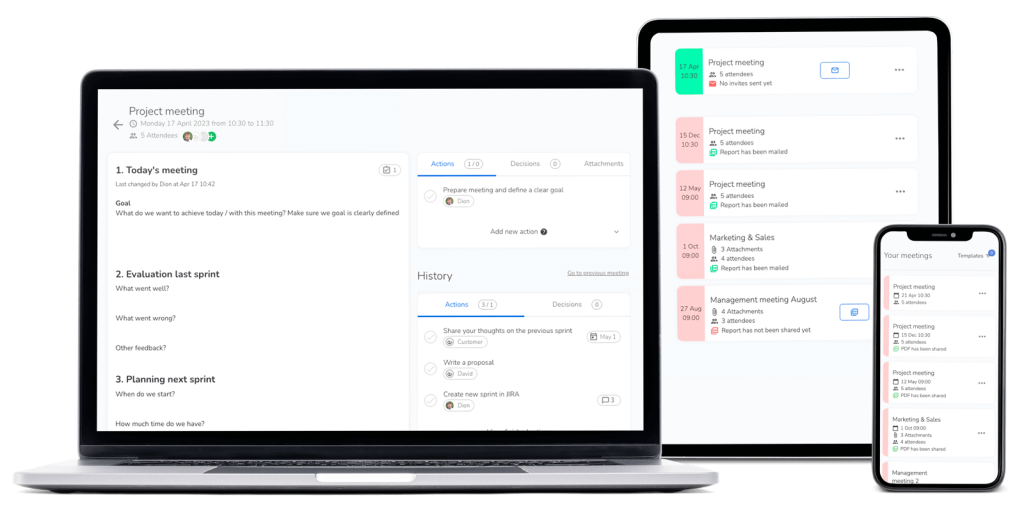In the fast-paced world of modern work culture, where connectivity is constant, and information flows ceaselessly, the fear of missing out, or FOMO, has found a new breeding ground: the ubiquitous workplace meeting. Meetings have become a staple of professional life, often leaving employees grappling with the anxiety of missing out on crucial decisions, updates, or networking opportunities. In this blog post, we explore how FOMO manifests in the context of the countless meetings we attend, the impact it has on productivity, and strategies to mitigate its effects.
The FOMO Phenomenon:
- Constant Stream of Information:
With the advent of digital communication tools, information flows incessantly. From real-time project updates to impromptu brainstorming sessions, the workplace is alive with constant streams of information. The fear of missing out arises when employees worry that they might be excluded from critical discussions or decisions if they don’t attend every meeting. Example: Imagine a team member skipping a project update meeting, only to find out later that a major pivot in strategy was discussed and decided during that session. - Networking Opportunities:
Meetings provide valuable networking opportunities, a chance to interact with colleagues, managers, and even external stakeholders. FOMO kicks in when employees fear missing out on building essential connections that could advance their careers or enhance collaboration. Example: A spontaneous departmental meeting turns into a platform for team members to discuss cross-functional projects, presenting an opportunity to network and collaborate. Those absent may feel they’ve missed a chance to strengthen professional relationships. - Decision-Making Dynamics:
Meetings are often the arenas where crucial decisions are made. The fear of not being present during these decision-making moments can lead to heightened anxiety. Employees may worry that their input won’t be considered, or worse, that decisions made in their absence may impact their work directly. Example: A marketing team meeting where a shift in the target audience is discussed and decided could significantly impact the content creation team if they aren’t present to provide insights into their workflow. - Company Culture and Dynamics:
Meetings contribute significantly to shaping company culture and team dynamics. Team-building exercises, collaborative discussions, and even casual conversations during meetings foster a sense of belonging. FOMO arises when employees fear missing out on these cultural nuances and the connections they bring. Example: A spontaneous Friday afternoon meeting, where teams share achievements and celebrate milestones, becomes a bonding experience. Those absent may feel disconnected from the team spirit.
The Impact on Productivity:
While FOMO may seem like a trivial concern, its impact on productivity is significant. The compulsion to attend every meeting to avoid missing out can result in:
- Time Drain:
Endless meetings consume valuable working hours, leaving employees with less time to focus on their primary tasks. The fear of missing out can lead to overcommitment to meetings, hindering individual and team productivity. - Burnout:
The constant need to be present in every meeting can contribute to burnout. Employees may find themselves stretched thin, juggling multiple meetings, and struggling to meet deadlines. - Reduced Effectiveness:
The quality of participation in meetings can suffer when individuals are mentally preoccupied with the fear of missing out. Attendees may be physically present but mentally absent, diminishing the overall effectiveness of the meeting.
Strategies to Mitigate FOMO in Meetings:
- Clear Communication:
Establish a culture of transparent communication. Ensure that meeting agendas are communicated in advance, so team members know the purpose of the meeting and whether their presence is essential. - Selective Attendance:
Encourage a culture where team members can selectively attend meetings based on their relevance to their role and responsibilities. This allows employees to prioritize their time and contribute meaningfully to discussions that directly impact their work. - Leverage Technology:
Use digital tools to record and share meeting summaries. This ensures that even if someone cannot attend a meeting, they can catch up on the key points and decisions made. - Prioritize and Plan:
Prioritize meetings based on their importance and relevance to individual and team goals. Plan meetings strategically to avoid overloading team members with unnecessary sessions. - Encourage Open Feedback:
Foster a culture where team members feel comfortable providing feedback on meetings. This includes suggesting improvements, expressing concerns about over-scheduling, and proposing alternative communication methods.
The fear of missing out has permeated the workplace, finding a breeding ground in the countless meetings that characterize modern professional life. Recognizing the impact of FOMO on productivity is crucial for organizations seeking to create a healthy work environment. By implementing clear communication practices, allowing selective attendance, leveraging technology, prioritizing meetings, and encouraging open feedback, companies can strike a balance between fostering collaboration and ensuring individual and collective effectiveness. In doing so, they can alleviate the anxiety of missing out and create a workplace culture where meetings are purposeful, productive, and conducive to both personal and professional growth.













